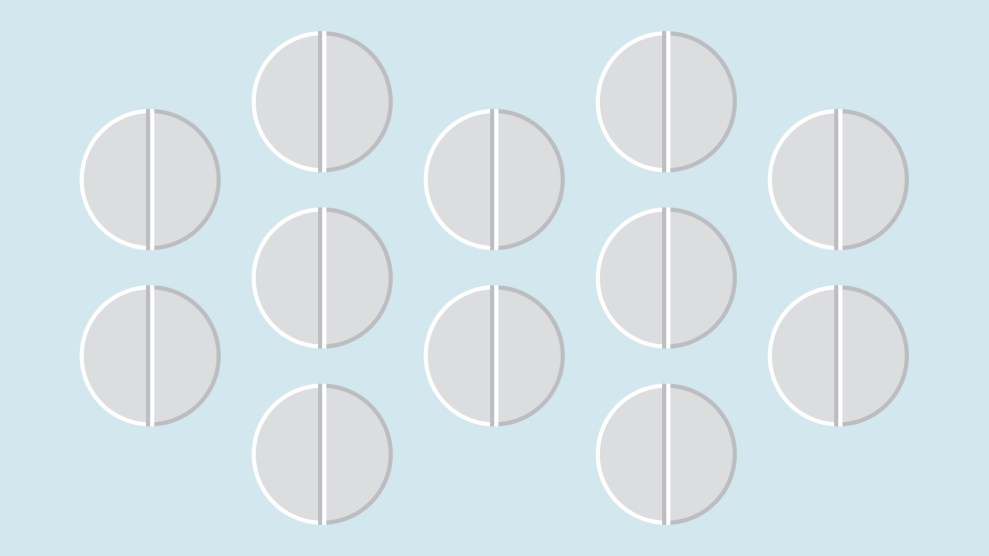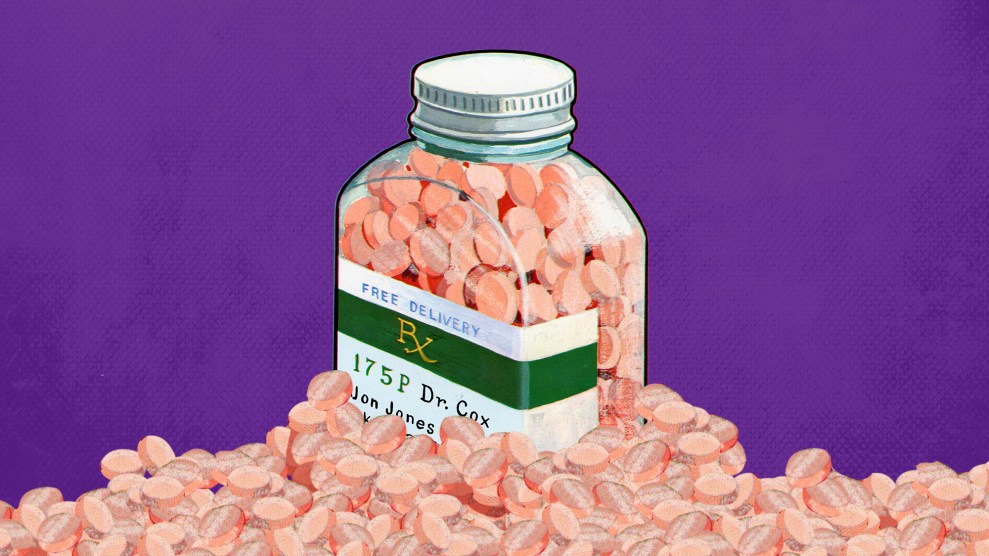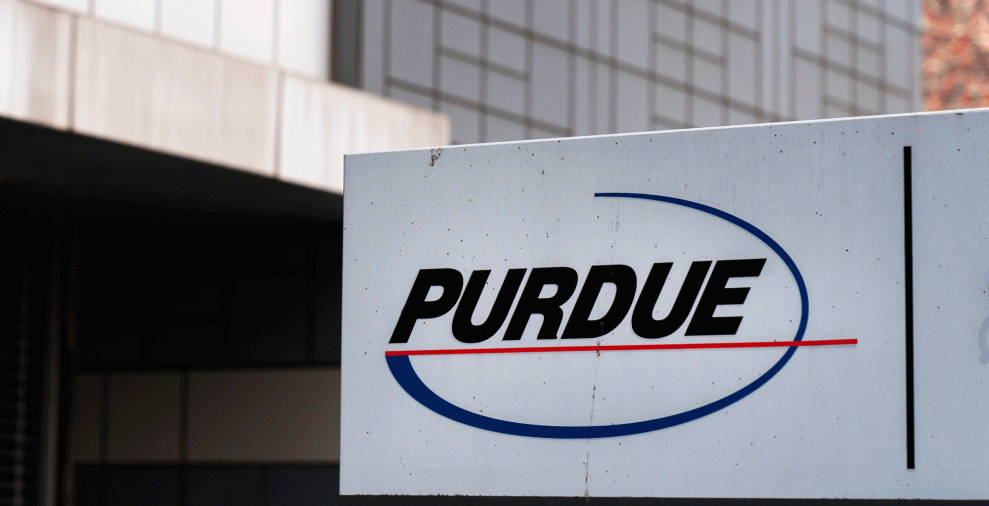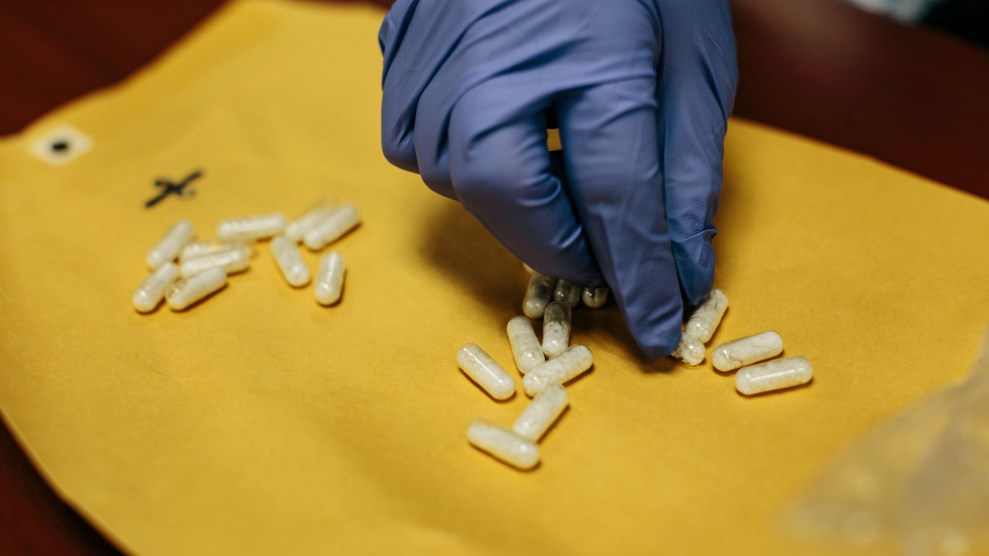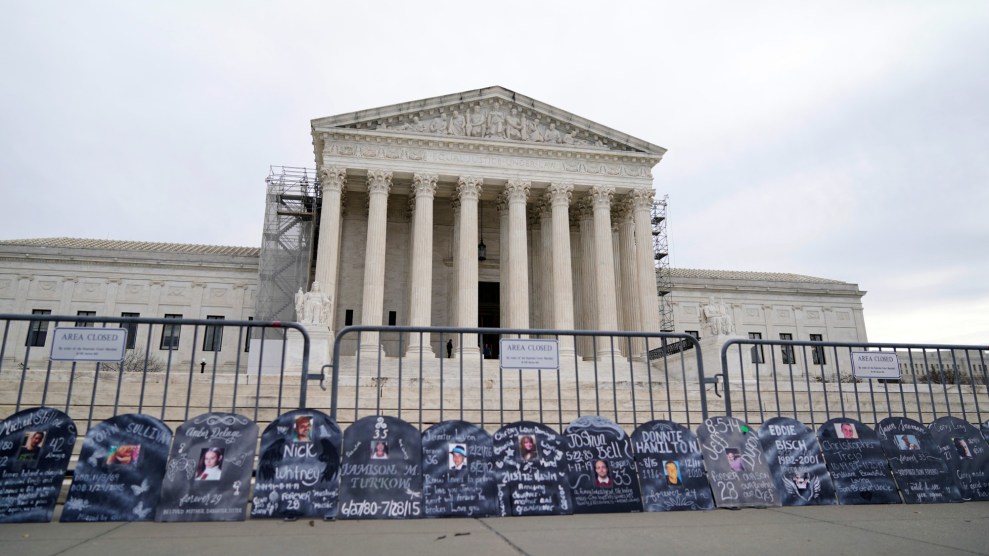
Signs in the shape of headstones, with information on people who died from using OxyContin, line a security fence outside the Supreme Court Monday, Dec. 4, 2023.Stephanie Scarbrough/AP
When the Supreme Court ruled Thursday that members of the Sackler family can’t be shielded from future lawsuits related to the opioid crisis, the justices threw into question a massive, carefully crafted settlement involving the states, local governments, tribes, and individuals that had sued flagship opioid maker Purdue Pharma.
The the 5-4 ruling jeopardizes a bankruptcy plan for Purdue that would have released billions of dollars to combat the ongoing opioid crisis in exchange for the Sackler family’s immunity from all current and future opioid liability.
In 2019, facing thousands of lawsuits, Purdue Pharma filed for bankruptcy—but not before the Sacklers had moved roughly $11 billion from the company to their personal accounts. “Fearful that the litigation would eventually impact them directly, the Sacklers initiated a ‘milking program,'” wrote Justice Neil Gorsuch in the majority decision. He was joined by Justices Clarence Thomas, Samuel Alito, Amy Coney Barrett, and Ketanji Brown Jackson.
During the settlement negotiations, the Sacklers offered to pay $6 billion in exchange for immunity from future opioid-related lawsuits. But the Supreme Court ruled that the deal violated bankruptcy law by shielding Sackler family members—who have not filed for bankruptcy themselves—from future litigation without the consent of potential plaintiffs.
“The Sacklers have not filed for bankruptcy and have not placed virtually all their assets on the table for distribution to creditors, yet they seek what essentially amounts to a discharge,” wrote Gorsuch.
In an unsparing dissent, Justice Brett Kavanaugh, joined by Chief Justice John Roberts and Justices Sonia Sotomayor, and Elena Kagan, warned of the ruling’s consequences, calling the decision “devastating for more than 100,000 opioid victims and their families.” Kavanaugh later noted, “No one can have more hostility towards the Sacklers and a greater desire to go after the Sacklers’ assets than the opioid victims themselves. Yet the victims unequivocally seek approval of this plan.”
While the majority of individuals claimants who voted on the deal did agree to the settlement terms, the bankruptcy plan was “hardly a windfall” for opioid victims, noted Regina LaBelle, who served in the Office of National Drug Control Policy under Presidents Obama and Biden, in a recent Medpage Today op-ed. Of the $6 billion proposed in the bankruptcy court plan, just $750 million was set aside for individual victims, with payouts ranging from $3,500 to $48,000. The rest would have been set aside for other parties in the case, including state and local governments.
“Had the Sackler family not sought immunity, this chapter would perhaps be over, and individuals, governments, and communities would soon receive restitution,” LaBelle wrote. “In the end, it is the Sackler family that upended a resolution to this issue. Ultimately, it is up to the Sacklers. The next move is theirs.”
States are already participating in settlements from various opioid lawsuits, including against opioid manufacturers, pharmaceutical distributors, and retail pharmacies. Estimated payouts from the settlements could come to around $50 billion in total, reports NPR. While much of the funding is being used for addiction treatment, states are given wide leeway on how to spend the settlement money. As KFF Health News found, some funding decisions have sparked controversy—particularly decisions to fund sheriffs’ departments and gear for police and jails—and corporations pedaling flashy solutions to the opioid crisis see the settlements as a potential “cash cow.”
Those on both sides of the Supreme Court decision are calling for a return to negotiations as soon as possible. “Advocates from across the country are going to fight like hell…to ensure that every single penny of victims’ compensation is protected at all costs,” said Ryan Hampton, an activist and author who supported the plan. “People need to know this case doesn’t go into the sunset after today. There will be a deal.”

